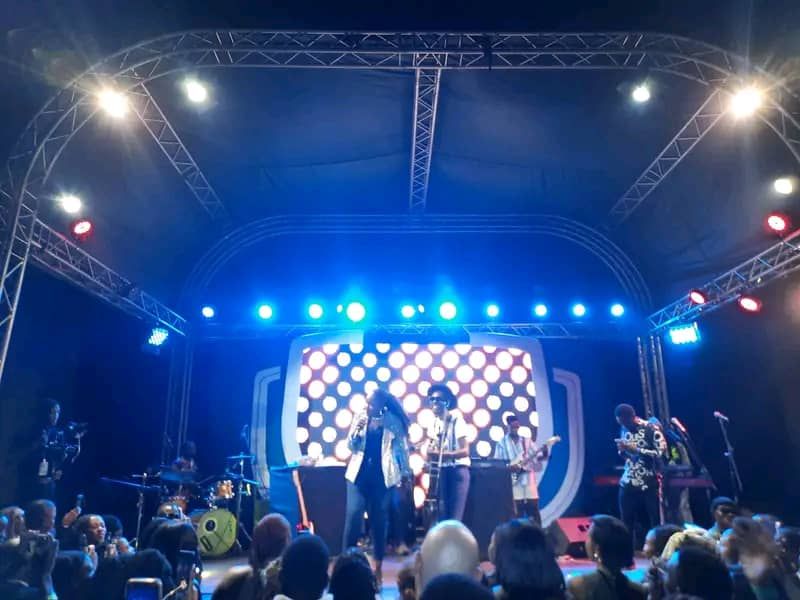By Burnett Munthali
Lawi’s recent live performance, where he invited Minister Vera Kamtukule to join him on stage, presented an intriguing fusion of art and politics. Known for his celebrated song Therere, Lawi took the opportunity to surprise the audience by showcasing Minister Kamtukule’s hidden musical talent. However, what began as a display of Malawi’s cultural richness quickly shifted into a politically charged moment that exposed the audience’s frustrations with the current administration.
The moment Lawi announced that Minister Kamtukule could sing came as a surprise to many, especially considering her role as a government official. It revealed a new side of the minister, reminding the audience of the diverse talents found within Malawian society, even among political figures. Her willingness to step out of her formal position and share her artistic passion added a personal, relatable element to her public persona.
Kamtukule’s performance, backed by Lawi’s guitar skills, was a symbol of how art has the power to bring people together. It blurred the lines between personal identity and professional responsibility, showing how a figure known for their leadership in governance could also contribute to the creative sector. Her remarks following the performance, in which she praised Malawi’s artistic talent and highlighted the potential for economic growth through cultural industries, aligned with her role as a promoter of national development.

Despite the positive display of talent, the atmosphere soured when Kamtukule concluded her remarks by stating, “This is the same government!” The crowd, already primed with political discontent, reacted negatively to what they perceived as an endorsement of the current administration. Loud boos and calls for her to step down echoed through the venue, signaling that for some Malawians, political frustrations overshadow moments meant for celebration.
This reaction underscores the tension in Malawi’s political environment, where public officials are held accountable not only for their individual actions but also for the broader performance of the government. In this instance, Kamtukule’s association with the government shifted the focus away from her musical talent, reflecting the dissatisfaction some Malawians feel with the administration. The audience’s response highlights how deeply politics influences public perception, even in a non-political setting.
The incident brings to light the complex relationship between art, public figures, and political perception in Malawi. While art can serve as a bridge between different sectors of society, it can also become a platform for airing political grievances. In this case, what was intended to be a lighthearted and positive performance was quickly overshadowed by political undertones. The audience’s response to Kamtukule’s remarks shows that public figures cannot easily escape the political expectations placed upon them, even in artistic environments.
Moreover, this situation demonstrates that when public figures, especially politicians, step outside their formal roles, their actions are still viewed through a political lens. For Kamtukule, her musical talent could not separate her from her position within the government, and the crowd’s reaction highlighted their ongoing frustrations with political leadership.
Lawi’s surprise performance with Minister Vera Kamtukule was meant to celebrate Malawi’s artistic talent and foster a positive collaboration between different sectors. However, the event ultimately reflected the political discontent felt by many Malawians. It serves as a reminder that public figures, especially those in political office, are constantly under scrutiny, even in non-political spaces. Their actions, no matter how well-intentioned, are often viewed within the broader context of governance and public dissatisfaction.
The incident at Lawi’s performance highlights the importance of addressing the concerns of the public. It underscores the need for government leaders to bridge the gap between their official roles and the sentiments of the people they serve. For Malawi to fully harness its artistic potential, political leaders must also work to restore public trust and address the underlying issues fueling discontent among the population.


